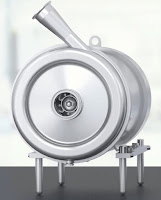Sanitary and hygienic tubes, fittings, valves, and pumps are used in a variety of industries, such as food and beverage, pharmaceuticals, and biotechnology, to convey materials and fluids in a safe and clean manner. These types of equipment are designed to meet strict standards for cleanliness and sanitation, which helps to prevent contamination and maintain the purity of the products being transported.
One of the key advantages of using sanitary and hygienic equipment is that it is designed to minimize the potential for bacterial growth. This is achieved through the use of materials that are resistant to corrosion and easy to clean, such as stainless steel and other high-grade alloys. The surfaces of these components are typically smooth and polished, which reduces the ability of bacteria to adhere to them and makes it easier to remove any contaminants that may be present.
Another important factor that contributes to the safety and purity of products conveyed through sanitary and hygienic equipment is the use of high-quality seals and gaskets. These components are designed to prevent the leakage of fluids and minimize the potential for cross-contamination between different products. They also help to maintain the integrity of the system by preventing the ingress of dust, dirt, and other contaminants.
Valves used in the sanitary and hygienic applications are designed to be easily disassembled and cleaned, some of them even can be cleaned in place (CIP). This makes it much easier to maintain the system and keep it in a sanitary condition. Pumps also have a similar design feature like the valves. The design of the pumps is critical in maintaining the purity of the products being transported. They are typically constructed with high-grade materials and feature smooth, polished surfaces that are easy to clean.
In summary, the use of sanitary and hygienic equipment provides a number of advantages when it comes to maintaining the purity and safety of products. The equipment is designed to minimize the potential for contamination, through the use of materials that are resistant to corrosion and easy to clean, high-quality seals and gaskets, and design that enable easy cleaning. All of these factors contribute to a safer and more efficient system that can help to ensure the quality and purity of the products being conveyed.



